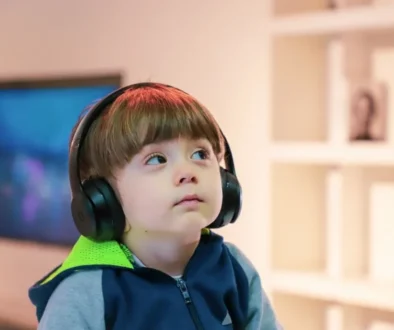Is OCD Neurodivergent? An Overview of Neurodivergence
Are you aware that 1 in 200 children have Obsessive-Compulsive Disorder (OCD)? As a parent, understanding whether OCD is a part of neurodivergence becomes a journey into the heart of how we understand and support our children’s unique minds.
In this article, we look at the relationship between OCD and neurodivergence, offering insights that go beyond the surface.
Let’s shed light on the questions that often linger in the minds of many parents: Is OCD neurodivergent? And if so, how does this understanding impact our approach to nurturing our children’s mental well-being?
Continue reading below.
What is Neurodivergence?
Neurodivergence refers to the variation in the human brain regarding:
- Sociability
- Learning
- Attention
- Mood
- Other mental functions
It’s a concept that celebrates the diverse spectrum of neurological differences as natural variations of the human brain, rather than deficits. This perspective shifts the focus from a ‘one-size-fits-all’ approach to understanding brain health to appreciating the unique variations each individual brings.
Types of Neurodivergence
ASD (Autism Spectrum Disorder) is perhaps the most recognized form of neurodivergence in children. It’s characterized by differences in:
- Social interaction
- Communication
- Interests
- Behavior
While autism presents challenges, it’s important to acknowledge the unique strengths and perspectives that autistic individuals contribute.
Children with ADHD may exhibit:
- Hyperactivity
- Inattention
- Impulsivity
Understanding ADHD as a part of neurodivergence helps in recognizing these behaviors not as mere misbehavior but as part of a neurologically diverse profile.
Dyslexia and Dyscalculia are learning differences that affect reading (dyslexia) and mathematical skills (dyscalculia). Kids with these conditions often think and learn differently, which can be a source of innovation and creativity when nurtured appropriately.
Sensory Processing Disorder affects how the brain processes sensory information. Children with SPD may be over-sensitive to stimuli in their environment, or they might seek out more sensory stimulation than is typical.
Tourette Syndrome and Tic Disorders involve repetitive movements or unwanted sounds (tics) that can’t be easily controlled. They represent another facet of neurodiversity, often misunderstood in social contexts.
Understanding Obsessive-Compulsive Disorder (OCD)
Obsessive-Compulsive Disorder (OCD) is a mental health condition often misunderstood and overlooked, especially in children. It is characterized by a pattern of unwanted thoughts or fears (obsessions). These obsessions lead to repetitive behaviors (compulsions).
Obsessions are intrusive and unwanted:
- Thoughts
- Images
- Urges
They trigger intensely distressing feelings. Common obsessions might include:
- Fears of germs
- A need for things to be in perfect order
- Disturbing thoughts about harm
In response to these obsessions, a child with OCD feels driven to perform specific behaviors or rituals repeatedly. These compulsions are meant to reduce anxiety related to the obsessions. Examples include:
- Excessive handwashing
- Checking things repeatedly
- Arranging things in a particular, precise way
Is OCD Neurodivergent?
The question of whether Obsessive-Compulsive Disorder (OCD) is considered neurodivergent is a topic of ongoing discussion and research in the mental health community. To understand this, it’s important to first recognize that neurodivergence is a broad term encompassing a range of neurological differences.
It’s not just about specific conditions, but about acknowledging and valuing the diverse ways in which brains function and process information.
Recent studies suggest that OCD does have neurological underpinnings, much like other neurodivergent conditions. Brain imaging studies have shown differences in certain areas of the brain in individuals with OCD, suggesting a neurobiological basis for the condition.
There is often an overlap between OCD and other neurodivergent conditions, such as ADHD and ASD. For example, repetitive behaviors and rigid thinking are common in both OCD and ASD, hinting at a neurodivergent overlap.
Viewing OCD through the neurodiversity lens can offer a more holistic and empathetic approach to treatment and support. It emphasizes understanding the individual’s unique brain wiring, rather than solely focusing on the disorder aspect.
Recognizing OCD as part of the neurodiversity spectrum can have significant implications for how children with OCD are supported:
- Tailored support and interventions
- Reducing stigma
- Focus on strengths
Recognizing Neurodivergence in Mental and Brain Health
Parents and educators play a pivotal role in recognizing and supporting neurodivergence. By fostering an environment of acceptance and understanding, they can help neurodivergent children thrive. This includes:
- Being observant and responsive to each child’s unique needs and behaviors
- Seeking professional guidance
- Advocating for their child in educational and social settings
Recognizing neurodivergence in mental and brain health is about creating a society that values and supports all forms of neurological diversity. As we move forward, this understanding will continue to shape our approach to:
- Mental health
- Education
- Career expectations
That way, every child has the opportunity to reach their full potential.
Recent Research and Insights
A significant development reported by ScienceDaily in June 2023 unveiled a newly discovered brain mechanism linked to anxiety and OCD. This study emphasizes the importance of understanding the specific brain regions and pathways involved in OCD, which could lead to more effective treatments and therapies.
Research discussed on Medical Xpress in November 2023 explored how certain therapies for OCD can retrain the brain. The study showed that this form of therapy strengthens connectivity between cognitive control networks in the brain. It demonstrates the potential of targeted therapies to improve brain function in individuals with OCD.
A study published in Psychoradiology, as reported by Medical Xpress in November 2023, provided new insights into the role of ‘insight’ in OCD treatment and neuroimaging.
It explored how patients’ awareness of their thoughts and behaviors as symptoms of a disorder (insight) is linked to treatment effectiveness. This research underscores the need for personalized treatment strategies, considering the varying degrees of insight among individuals with OCD.
Embracing the Spectrum: OCD in the Neurodivergent Landscape
Is OCD neurodivergent? The answer remains unknown. However, we’ve explored various dimensions of OCD and its place within the neurodivergent spectrum. The evidence and recent research we’ve discussed offer promising hope for the future of this field.
For parents navigating these complexities, particularly those in Texas, Developmental Pediatrics for Texas Kids offers specialized care with a focus on each child’s unique developmental needs. They provide invaluable guidance in understanding and nurturing neurodivergent children, including those with OCD.
Connect with us today for personalized care that makes a difference.



